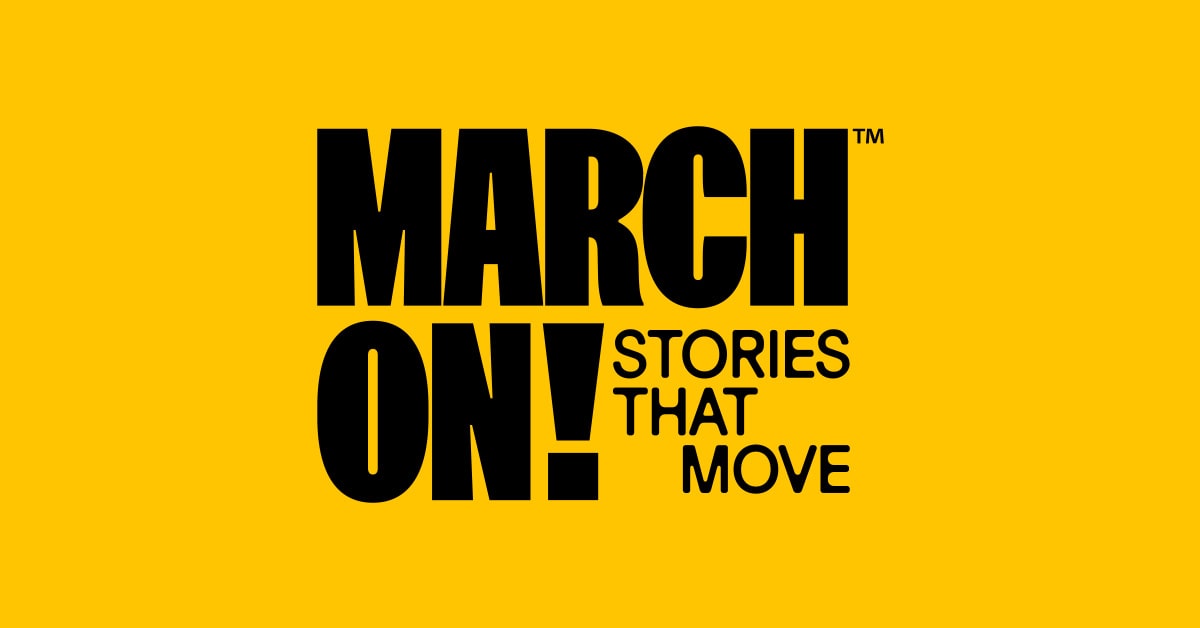In the heart of the nation’s capital, where history has often been made and echoes of the civil rights movement still resonate, an event like no other unfolds each year. March On is the longest running festival dedicated to civil rights. This year, the organizing team unveiled its thought-provoking theme of “Pulpits, Protest, and Power,” from Sept. 24 to Oct. 1. The objective was to bring together a diverse array of voices to explore the intersection of faith, activist and social change.
Attending this live event is not just a chance to witness remarkable films, but to engage in a powerful conversation about the past, present and future of protest movements in America.
One of the hallmarks of March On is its commitment to showcasing stories that have often been overlooked by mainstream media. The films screened during the event shed light on pivotal moments in history, such as the civil rights movement, as well as contemporary issues of social justice. These narratives are brought to life by filmmakers who are passionate about preserving and sharing the untold stories of activism.
Raoul Peck, Jon Sesrie Goff, Rokhaya Diallo, Lisa Cortes and Diego Hurtado showcased their films at this year’s festival.
Peck’s film entitled Silver Dollar Road follows the story of the Reels family, who are working to safeguard their ancestors’ land, after their relatives were wrongfully imprisoned for eight years – the longest sentence for civil contempt in North Carolina history.
Goff showcased After Sherman, a story about inheritance and the tension that defines the collective American history, with a focus Black history. Diallo presented documentation of the complex relationship between African-Americans and Jewish people during the Civil Rights Movement.
Cortes presented two movies. The first was Little Richard, I Am Everything which attributes the artist Little Richard with the current styles featured in mainstream media today. The second, made in partnership with Hurtado, focuses on Black pilots, engineers and scientists that contributed to America’s success in the space race.
Each film presented is listed on marchonfest.org and shares where the movie can be found.
The event took place at the Duke Ellington School of the Arts, where students of the school performed songs, dances and spoken word. The crowd watched in awe as the talented students showcased their hard work and creative genius. Later in the program, Grammy award winning gospel artist, Yolanda Adams, graced the stage with her mesmerizing vocals and strong stage presence.
Adams’ performance encouraged the audience to be pleased with the image God has created them in and to embrace the trials that life may present because it’s all for the better.
“I love that my students have opportunities to showcase their talents at such a young age,” said Sandi M. Logan, principal at Duke Ellington. “It saddens me that there are schools in our nation where Black history is unable to be celebrated and students aren’t encouraged to embrace their legacies as African Americans. I will always make it my responsibility to ensure that doesn’t happen anywhere I work.”
The festival’s event, “Pulpits, Protest, and Power,” underscores the enduring role of faith and moral conviction in movements for social justice. It highlights the power of voices from the pulpit to mobilize communities, fostering a sense of purpose and unity. Attendees leave not only with a greater understanding of the past but also with a renewed sense of their own agency to effect change.
The festival serves as a catalyst for activism, motivating individuals to carry the torch of justice forward in their own communities. What sets the live event apart is the opportunity it provides for meaningful dialogue. Attendees are not passive viewers but active participants in
discussions with filmmakers, scholars and activists. These conversations transcend the screen, offering a space for reflection, debate and, ultimately, a deeper understanding of the issues at hand.
March On encourages attendees to ask tough questions, challenge preconceptions, and explore how history continues to shape our world.
Minister Rahiel Tesfamariam, one of the speakers at the event, said, “I believe that Jesus has a message for this generation. The time is now Black woman and Black girl. The time is not tomorrow or in the future. It is today. They speak of justice, mercy and his grace but the wrath of God is on our side.”
Attending March On’s live event was not merely an opportunity to watch films; it is an immersive experience that invites reflection, dialogue and a renewed commitment to social justice.
In a world where the struggle for equality continues, this festival serves as a beacon of hope and a reminder that the power of storytelling and activism can shape a brighter future.
Read the source article: CLICK HERE




